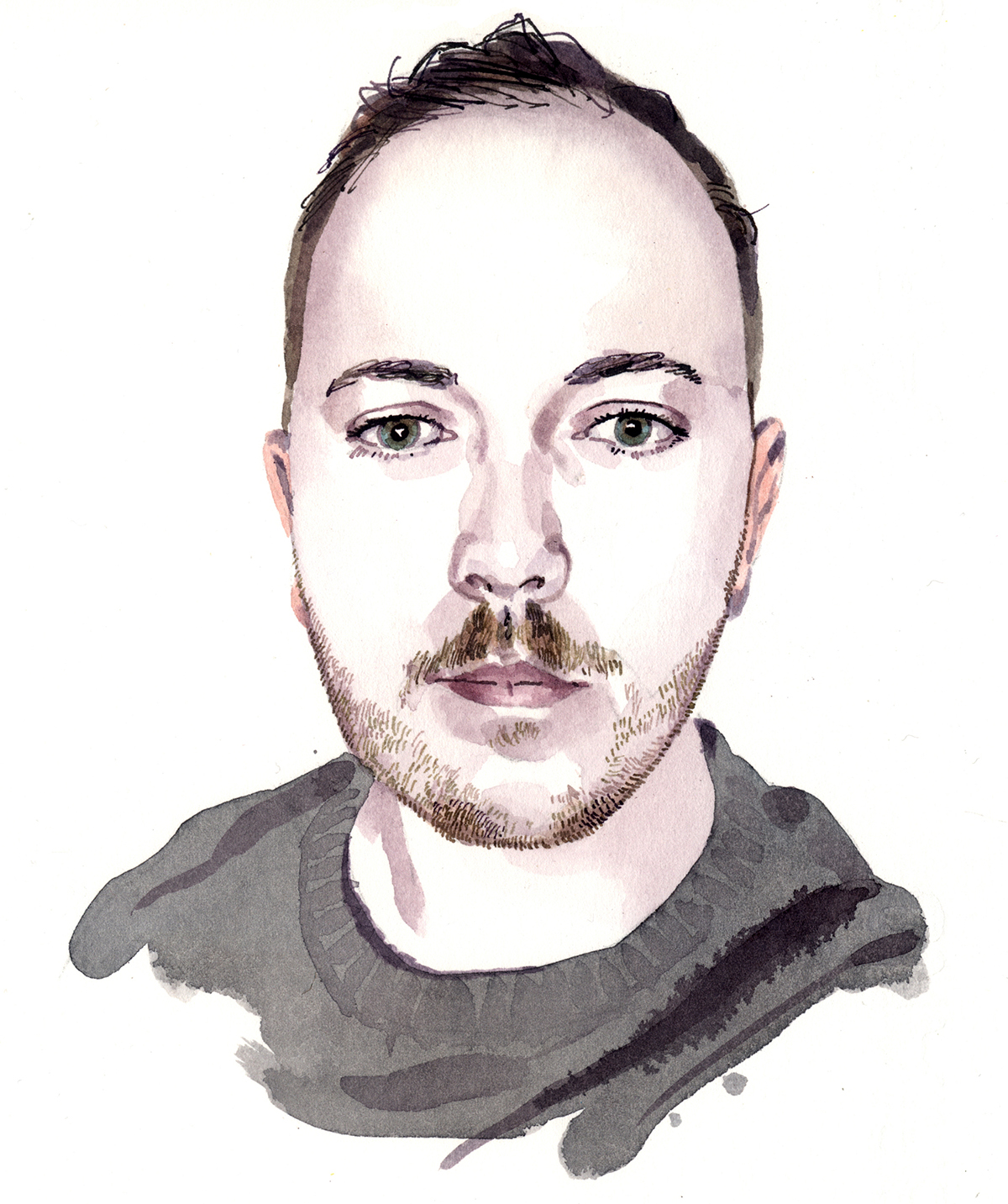Don Greenwood Explores How Social Workers Can Help Stop Human Trafficking
Advocates can better link survivors with new sources of support.

Illustration by Matthew Cook
Don Greenwood Explores How Social Workers Can Help Stop Human Trafficking
Advocates can better link survivors with new sources of support.
Human trafficking is a dark reality, but solid evidence about how the shadow world operates can be scant, which makes enforcement challenging.
Social work scholars are leading the charge to collect survivors’ stories, which could illuminate both predators and prey. Their accounts can help people understand how trafficking works and assist with the large-scale efforts to end it.
Don Greenwood ’20 MSW is helping shine a light on the harsh realities faced by more than 3,000 victims each year in Texas alone.
“Change doesn’t come about just from an ideal,” he said. “Knowledge of what’s happening is a very important part.”
“Change doesn’t come about just from an ideal. Knowledge of what’s happening is a very important part.”
Don Greenwood
Greenwood’s mentor and adviser, Mary Twis, interim director of the MSW program and assistant professor of social work, interviewed seven sex trafficking survivors. She and research partner Kathleen Preble, an assistant professor of social work at the University of Missouri, asked women about how they became ensnared by traffickers, how social services helped them escape and heal, and what the anti-trafficking movement gets right. Or wrong.
As Twis’ graduate research assistant, Greenwood read the lengthy interview transcripts multiple times and searched for themes.
Support for Victims
The purpose of the collaborative study was twofold: to identify risk factors, whether economic, racial or familial, that might have trapped people in exploitative situations, and to figure out ways for social workers to help survivors more effectively in the future.
Sex trafficking “is a very unique situation, in which these individuals are held in the position that they are in by a number of different factors,” Greenwood said. “They are facing emotional barriers, facing problems with the law as far as addiction, drug charges.”
The list goes on.
The interviews revealed that trafficking victims largely don’t trust and won’t divulge information to law enforcement officials — partly because prior to 2000, a minor arrested for selling sex was charged as a criminal, not treated as a victim. And society sometimes has trouble distinguishing between prostitution and modern-day slavery.
“You have to work on that systems level to create change, to create housing, to create whatever it may be that they need.”
Mary Twis
Social workers, however, whose purpose is to assist in the healing process, are in a prime position to put together pieces of the puzzle. The big picture, painted largely by the survivors who understand trafficking best, can be shared with detectives and police officers as part of a multifront effort to stop human trafficking.
Twis is training graduate students like Greenwood to keep in mind the way society’s institutions operate, even if they plan to go into one-on-one counseling and not work with policy.
The wide-angle policy approach to curb human trafficking goes hand in hand with working with individuals, Twis said. In her Macro Practice class, she teaches students about policy — how it’s made and how it filters down to affect vulnerable people who are trying to escape difficult situations like sex trafficking.
Social workers “have to change the systems,” she said. “It’s great if you’re a good case manager [for a survivor], but if there’s literally no housing for them, then good luck being a case manager. You have to work on that systems level to create change, to create housing, to create whatever it may be that they need.”
Ending Human Trafficking
To help her students understand how the top and bottom rungs of the sex trafficking ladder fit together, she had them work on a semester-long project with Unbound, a Fort Worth agency that offers multiple resources to help people escape the trafficking world. The final class project was to create a video for law enforcement professionals, educators and health care workers to help them understand who might be at risk and why.
Though the coronavirus pandemic put the video project on hold, Greenwood’s graduate research continued. He designed a test to be administered at the beginning and end of the Macro Practice course. By judging answers on how awareness of trafficking changed during the class, he and Twis wanted to understand if students could be taught to take systems into account in the sex trafficking issue.
“What we want to do is produce social workers and practitioners,” Greenwood said, “who have a really well-developed understanding of human trafficking and the evidence-based practices that can help this population.”
Greenwood said the research changed his perspective, if not his plans to provide individual therapy after graduation. “It’s definitely affected me in the sense of influencing me to want to provide more social change.”

Your comments are welcome
1 Comment
Thanks to Don Greenwood and Dr. Mary Twis and others for bringing light and heat to this important topic. Human trafficking hides in plain sight. We are all tasked with learning more and doing what we can.
Related reading:
Features, Research + Discovery
Elizabeth Theban’s Thesis Focuses on How “The Fox” Changed Art Criticism
A short-lived ’70s journal that used Marxist ideology had a significant influence on the art world.
Features, Research + Discovery
Sarah Wayer Seeks Ways to Strengthen Father-Child Bonds
The graduate student focuses on building relationships between adopted children and their fathers.